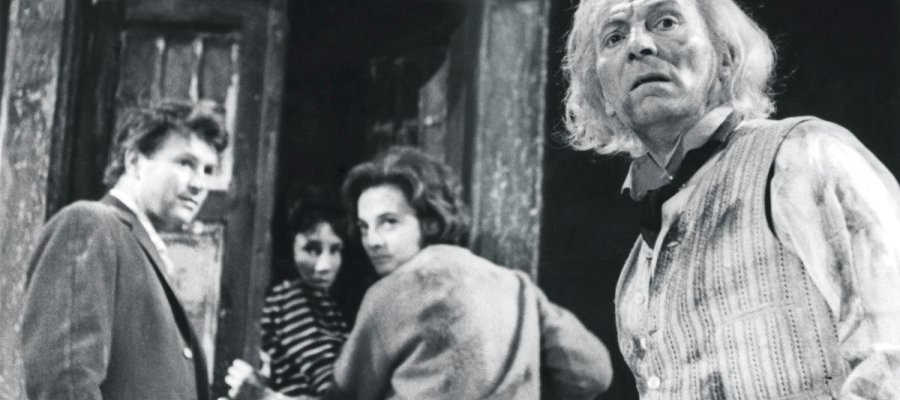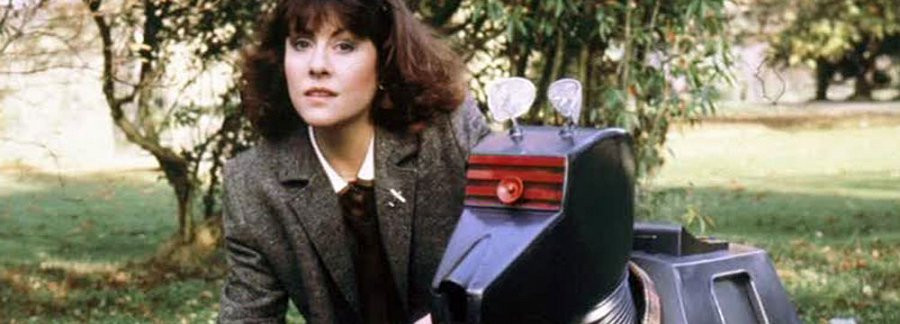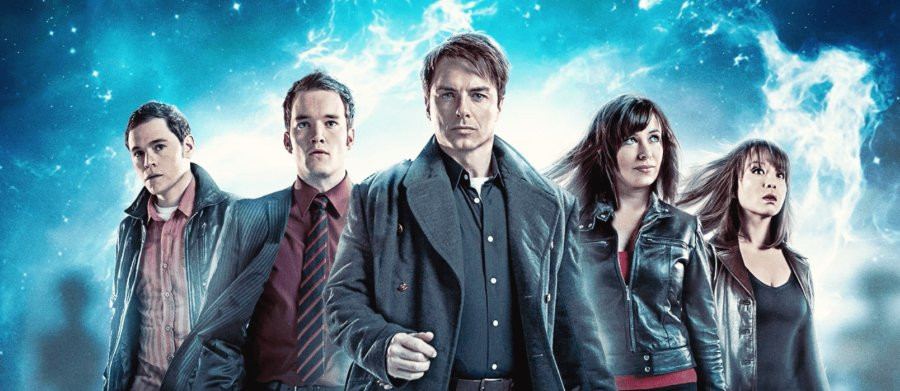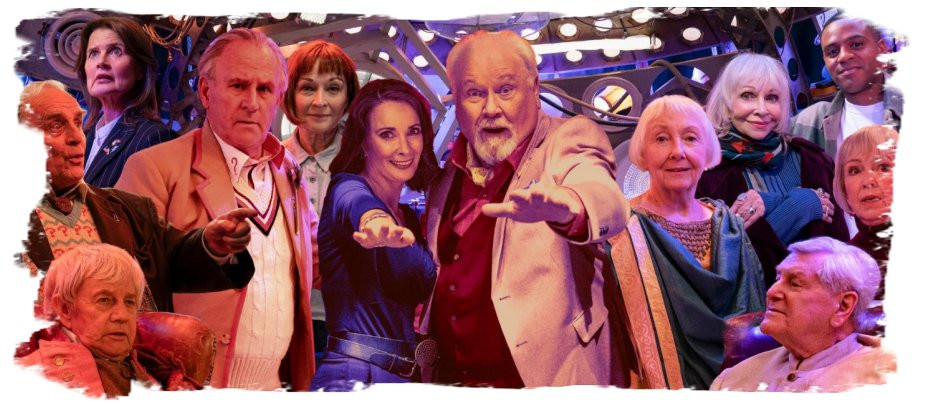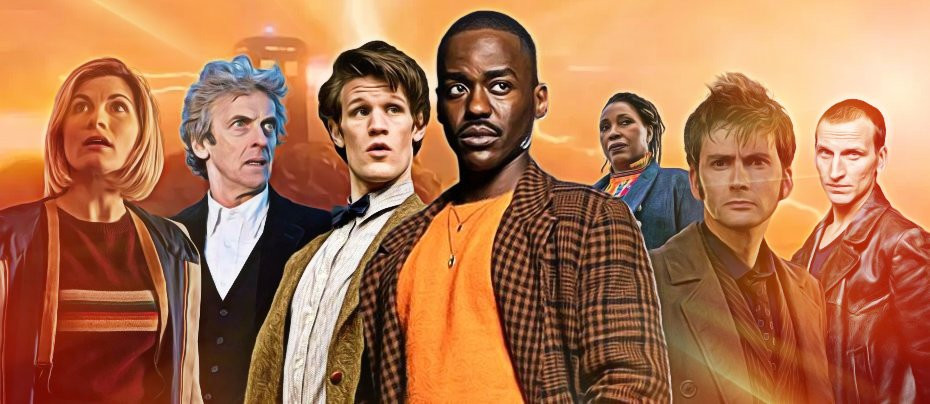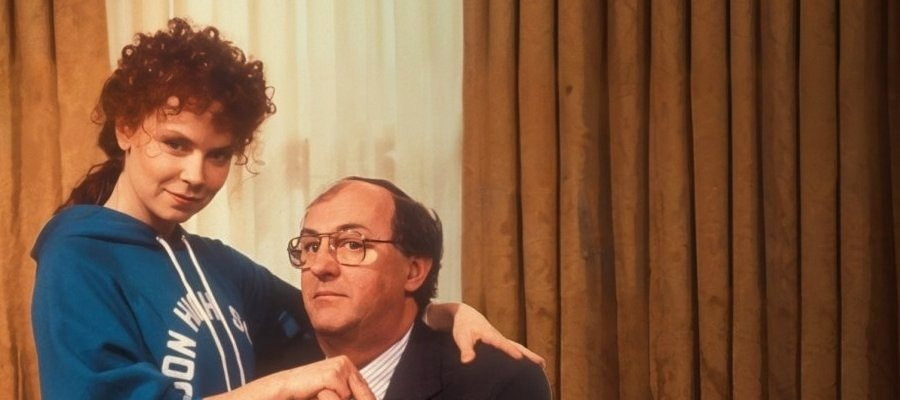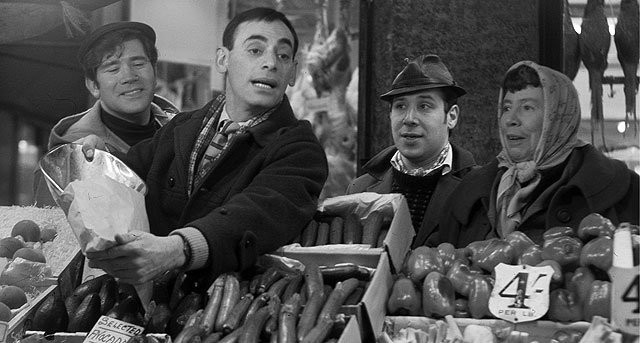The Myth Makers
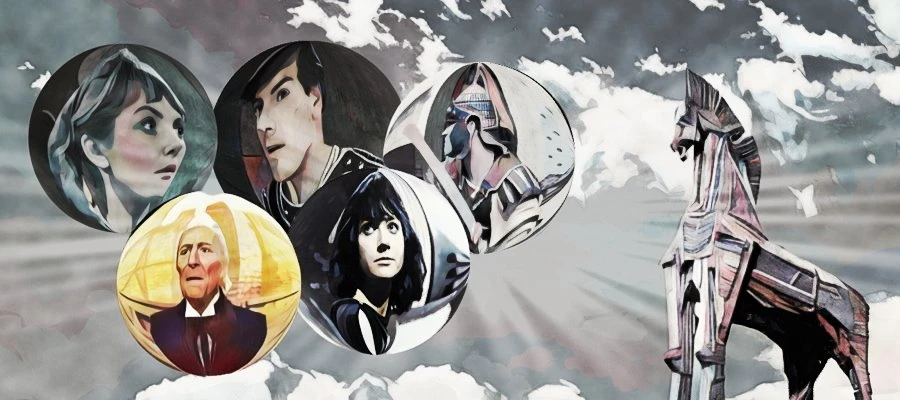
Another serial in this tumultuous period of early Doctor Who that shakes up the rules that had been established. In this case, it was an actual written rule: writers were, at the programme's inception, explicitly not allowed to have the Doctor or his companions be responsible for major historical events. The series had already bent this rule in The Romans, but now it would break it into pieces, in a story that's more about the popular impression of the past than actual history.
The Myth Makers is the first story actually recorded for season three, albeit the third broadcast after the stragglers from season two's production block. Verity Lambert, the original producer, is now gone, with John Wiles officially in the role (although he'd been doing the job off the books for a little while). Wiles wanted to make his mark on Doctor Who and expand it in new directions, including pushing further into comedy. It's also the first of two scripts for the programme by Donald Cotton, a well-regarded writer who was, at the time, largely working on the BBC's Third Programme (which later became BBC Radio Three). He had a scholarly interest in Greek history and mythology, which formed the basis of many of his radio plays, including adaptations of The Golden Fleece and The Tragedy of Phaethon. In spite of the name, the latter was, like most of Cotton's work, a comedy, with a satirical bent that characterised his work.
The Myth Makers was also referred to, in a single Radio Times article, as Doctor Who and the Trojan War, in case you didn't know what this story was all about. Whether the Trojan War ever actually happened is a matter of debate; while there may have been a conflict that inspired the legends, it's almost universally agreed that the famous account of Homer's Iliad is mythical. Even the existence of Troy itself was dismissed by most scholars until its ruins were excavated under Hisarlik in the Canakkale region of Turkey. There's one thing that pretty much everyone agrees on: the Trojan Horse never really existed.
While The Romans had mixed comedy and tragedy in an historical setting, The Myth Makers took it further, while also setting an adventure in a heavily mythologised time and place. Unfortunately, The Myth Makers is something of an archaeological mystery itself. It's one of Doctor Who's least documented serials, with all four episodes having been wiped by BBC and very few publicity photos having been taken. Fortunately, thanks to enterprising 1960s fans with no concern for copyright, off-air recordings exist of the whole soundtrack, and there are a few very sparse bits of film footage recorded by pointing a camera at a monitor.
It's fortunate then that Cotton's script is so wordy and witty, allowing us to get a fair grasp of the serial even just from audio. On the other hand, we're doubtless missing out on the visual elements of the cast's performances, which can make a significant difference to how a line or an entire character is taken, as well as an impressive army of extras and, of course, the wooden horse itself. Still, the script is good enough that we can enjoy the dialogue with the aid of Peter Purves's narration.
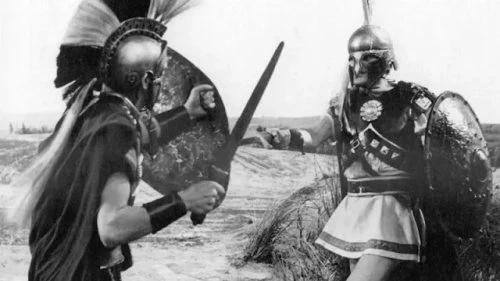
The TARDIS materialises in Asia Minor, probably in the 12th century BC, and the Doctor, Vicki and Steven witness the battle between Prince Hector of Troy (Alan Haywood) and Achilles of Greece. The Doctor decided he can't just watch and exits the TARDIS to intervene, distracting Hector enough that Achilles can kill him. The Doctor has been there about a minute and is already inextricably influencing the course of history. Achilles (Cavan Kendall – The Railway Children, Sexy Beast) decides, for reasons best understood by himself, that the Doctor is actually Zeus, appearing in one of his many guises. They are joined by Odysseus (Ivor Salter – Crossroads) who doesn't believe that Achilles killed Hector or that the Doctor is a god, but decides they're taking him back to camp anyway because he's obviously a spy. Everyone gets accused of being a spy at one point or another in this story.
Vicki and Steven have been watching this unfold from the safety of the TARDIS. Vicki has a twisted ankle from the end of Galaxy 4 (it happens to companions) so Steven heads out alone to try to rescue the Doctor. Let's just say it doesn't go well. Vicki eventually does venture outside after Hector's younger brother Paris (Barrie Ingham – Ann Veronica, Funny Man) has the TARDIS taken to Troy, where it is ordered to be burnt by the seer Cassandra (Frances White – May to December; I, Claudius and, um Peppa Pig).Vicki would have been better off staying inside the time machine, but once she's revealed herself, she is met by King Priam himself (Max Adrian – Victoria Regina, Oliver Twist) who decides that Vicki doesn't sound Trojan enough, and informs her that she's now called Cressida. If you've read or seen Shakespeare's Troilus and Cressida, you'll know where this is going.
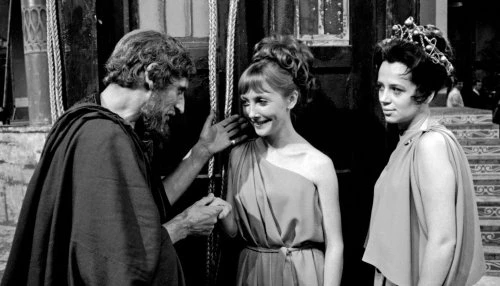
There's some remarkable talent involved here. Ingham and Adrian were big names in theatre, noted Shakespearean actors who demanded respect. Adrian in particular was a legend in acting circles and a star of the screen, having been a founding member of both the National Theatre and the Royal Shakespeare Company. (Then again, he would soon play Ludicrus Sextus on Up Pompeii! which shares some DNA with both The Myth Makers and The Romans). Cotton's status as a writer was enough to attract big names to the project. Other actors, just starting out in the business, include James Lynn as the youngest prince, Troilus, and Adrienne Hill as Cassandra's handmaiden Katarina, who appears in the final episode.
On the other side, the mighty Francis de Wolff (Hereward the Wake, Richard the Lionheart) plays the Greek king Agamemnon while Jack Melford (Emergency-Ward 10) is the put-upon Menelaus, who just wishes his wife Helen would stop running off with pretty boys so that he didn't keep having to go to war. Finally, we note Tutte Lemkow (The Little World of Don Cammelo, Raiders of the Lost Ark), the BBC's reserve generically foreign-looking shifty villain actor in his third Doctor Who role. Lemkow plays Cyclops, and it must have been a bit of a letdown for the kids watching when he turned out not to be a monstrous giant but just some bloke with one eye missing. Cyclops, who works as a spy for Odysseus, is also mute, which is a bit unfortunate when all we have left of the serial is audio.
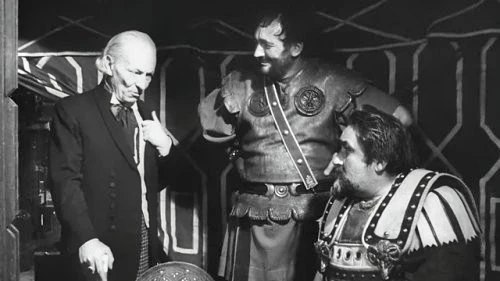
Over the course of the story the three time travellers find themselves pulled into the political machinations of the Greeks and Trojans and taking their place in history. The Doctor winds up working for the Greeks, being forced to help them overcome Troy's defences so that he and Steven aren't killed. It's a joy listening to him try to come up with something, anything but the patently absurd idea of a wooden horse. He even goes as far as trying to build a flying machine to help the Greeks over the walls, which would have played merry hell with history, rather than accept that the Trojan Horse is not only real, but that he invented it. Steven ends up posing as the legendary Diomedes so that he can be chosen to go into Troy to search for Vicki. Vicki herself must fend off the jealousy of Cassandra, while also finding herself growing rather close to Troilus.
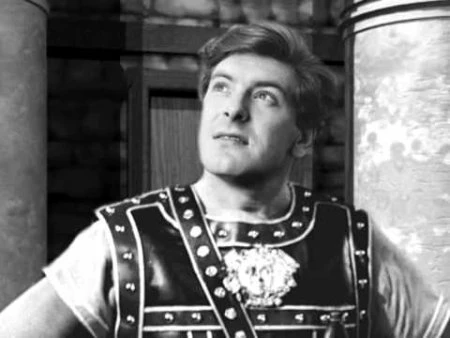
In spite of the dangers the characters face, everything is played in a jocular way, at least for the first three episodes. The Greeks and Trojans, for the most part, just want to be doing anything else but fighting yet another war, and drop out of cod-Shakespearean dialogue into gossiping and bitching like co-workers in a particularly slow office. There are some wonderfully silly exchanges, a particular favourite being Cassandra's reaction to the wooden horse and Paris' reaction to her: “Woe to the House of Priam! Woe to the Trojans!” “I'm afraid you're a bit late to say 'Woe' to the horse!”
Sadly, a couple of the best jokes were lost when two of Cotton's episode titles were vetoed by the powers that be. While he fought to retain episode two as “Small Prophet, Quick Return,” he had to change the first and last episodes' titles, which were originally “Zeus ex Machina” and the absolutely perfect “Is There a Doctor in the Horse?” Fortunately, he was able to reinstate these as chapter titles in his novelisation of the serial twenty years later. It's an exceptional piece of work, allowing Cotton to go fully into the comedy he envisioned as Homer narrates the events from a distinctly sardonic point of view.
For a comical story, things weren't much fun behind the scenes. Hartnell was suffering from the effects of atherosclerosis, which impacted his ability to remember lines and left him frustrated, while also reportedly jealous of being upstaged by Max Adrian on his own show. There's also a persistent rumour that he refused to work with Adrian on the basis that he was gay. While it's true that Hartnell wasn't the most progressive of men, there's no evidence this is true, and there were no scenes scripted involving the Doctor and Priam. The worst for Hartnell was that his Aunt Bessie had died and he wasn't permitted to delay filming to attend her funeral; as his aunt had essentially raised him, this was especially galling for Hartnell, who subsequently fell out with the director and producer.
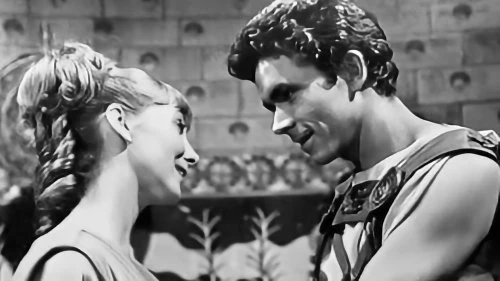
Maureen O'Brien, on the other hand, had aggravated Wiles during the recording of Galaxy 4 by picking holes in her dialogue and making complaints. Between the filming blocks, Wiles made arrangements to have Vicki written out, something that came as a surprise to O'Brien, albeit not an entirely unwelcome one, as she was reportedly disillusioned with the role. At the serial's end, Vicki elects to stay with Troilus instead of returning to the TARDIS, something which might be considered a little impulsive considering she's from several thousand year hence and presumably can't actually speak the Trojan language without the TARDIS working its magic. O'Brien would return to the role in 2007 in Frostfire, the first of many Big Finish appearances, and would appear as Vicki on screen once more in 2023 in Tales of the TARDIS, alongside Purves as Steven.
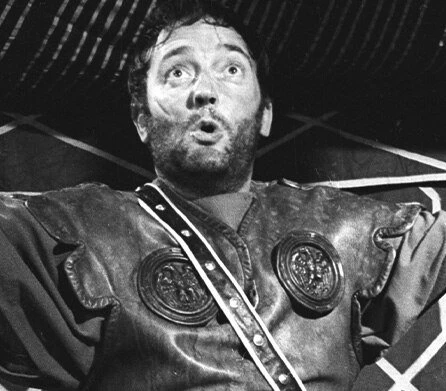
The final episode suddenly shifts from a violent but humorous affair into one of outright brutality, as the Siege of Troy begins and the blood flows. It's a powerful lurch in tone that knocks the viewer (or listener, as it is) for six. Things are downright grim at the end: Vicki is staying behind and going on the run with Troilus, while Steven has been severely injured in the battle. One more person escapes the bloodshed: the handmaiden Katarina, who unexpectedly becomes a short-term companion, still under the impression that Hartnell is the embodiment of Zeus. It's a strange end for what started as a frivolous adventure in a time of legend.
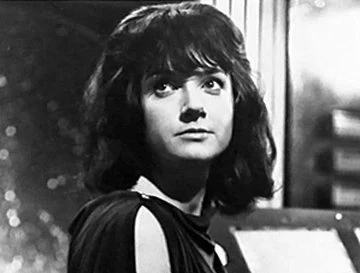
While you can't watch The Myth Makers, you can still listen to it. The narrated soundtrack is available as part of Doctor Who: The Lost TV Episodes – Collection One, along with soundtracks to Marco Polo, The Reign of Terror, The Crusade and Galaxy 4. If you'd prefer to try the novelisation, an excellent audiobook reading by Stephen Thorne is available as a standalone release and as part of The History Collection.


